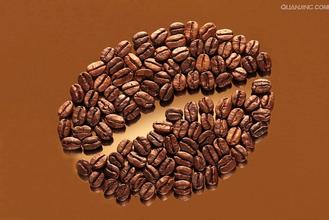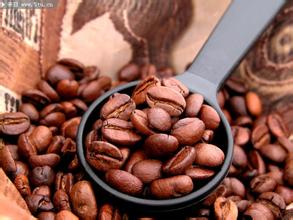Coffee beans from Bali, Indonesia introduce the processing methods of fine coffee
The coffee comes from the excrement of an animal called the civet (commonly known as the civet in Indonesia). Although it comes from smelly poop, it is full of sweetness and a burst of indescribable sweetness. This wild musk cat likes to eat fat and pulpy coffee fruits, but the hard hard nuts (raw beans) are indigestible and are excreted with feces. After being cleaned, they become Kopi Luwak coffee raw beans! So many people call it "cat shit" coffee. The Indonesians found that the coffee beans fermented by the civets' intestines and stomach are particularly thick and mellow, so they collect the civets' feces, sift out the coffee beans and brew them to drink. Because the yield is rare and the fermentation process is unique, the flavor is very different from that of ordinary coffee. Traditionally, coffee fruit is washed or sun-treated to remove the peel, pulp and sheep skin, and finally take out the coffee beans. However, Luwak uses natural fermentation in the body to remove the coffee beans, so it has a special flavor.
It is said that coffee farmers in early Indonesia regarded civet cats that ate ripe coffee fruits as mortal enemies, but at some point someone began to think of picking coffee beans from the civet droppings to make coffee with unique flavor. Coffee experts everywhere have tried and were amazed. Since then, local farmers spend a lot of time collecting civet droppings in the forest every day during the coffee ripening season.
After Indonesians remove the silver-gray film on the appearance of coffee beans, wash them with water, dry them in the sun, and stir-fry them, they become cat poop coffee beans.
Only about 150 grams of coffee beans can be extracted from a jin of civets' feces, which can cause 20% loss in the roasting process. Due to the unique raw materials and processing technology, this kind of coffee can be said to be very rare. No more than 400 kilograms of coffee beans are supplied worldwide each year.
Traditionally, coffee fruit is washed or sun-treated to remove excess parts and take out coffee beans, but Luwak obtains coffee beans by using its natural fermentation in civets, so it has a unique flavor.
Coffee beans generally go through the process of shell fermentation, coffee beans in the civets' intestines, special bacteria provide a unique fermentation environment, the flavor becomes unique, particularly thick and mellow. The coffee beans fermented by civets' intestines and stomach are very thick and mellow.
Eva, the owner of Special Cafe, is a coffee enthusiast who travels around the world every year in search of rare goods. She told reporters that the "Kopi Luwak" was once a tribute from Indonesia to the Dutch royal family. At that time, the industry regarded the coffee with the name of "cat shit" as a joke, and it was not until it was specially reported by National Geographic that people became interested in the Kopi Luwak.

Important Notice :
前街咖啡 FrontStreet Coffee has moved to new addredd:
FrontStreet Coffee Address: 315,Donghua East Road,GuangZhou
Tel:020 38364473
- Prev

Mantenin coffee beans with the strongest aroma introduce boutique coffee
Mantenin's leaping acid mixes with the richest aroma, making your relaxed body manning coffee lively in a mild fragrance, and its outstanding taste captivates many suitors. In the 17th century, the Dutch introduced Arabica seedlings to Ceylon (present-day Sri Lanka) and Indonesia. In 1877, a large-scale disaster struck Indonesia
- Next

Introduction to the flavor of Kenyan coffee with bright, mild and citric acid flavor
Kenyan coffee has always been a very representative category of African coffee varieties. Basically, every coffee lover has his own favorite African coffee or two, and Kenyan varieties must have a place in it. The best Kenyan flavors are hybrid and have quite obvious fruity flavors (such as strawberries and citrus) and sometimes lead to the belief that
Related
- Does Rose Summer choose Blue, Green or Red? Detailed explanation of Rose Summer Coffee plots and Classification in Panamanian Jade Manor
- What is the difference between the origin, producing area, processing plant, cooperative and manor of coffee beans?
- How fine does the espresso powder fit? how to grind the espresso?
- Sca coffee roasting degree color card coffee roasting degree 8 roasting color values what do you mean?
- The practice of lattes: how to make lattes at home
- Introduction to Indonesian Fine Coffee beans-- Java Coffee producing area of Indonesian Arabica Coffee
- How much will the flavor of light and medium roasted rose summer be expressed? What baking level is rose summer suitable for?
- Introduction to the characteristics of washing, sun-drying or wet-planing coffee commonly used in Mantenin, Indonesia
- Price characteristics of Arabica Coffee Bean Starbucks introduction to Manning Coffee Bean Taste producing area Variety Manor
- What is the authentic Yega flavor? What are the flavor characteristics of the really excellent Yejasuffi coffee beans?

